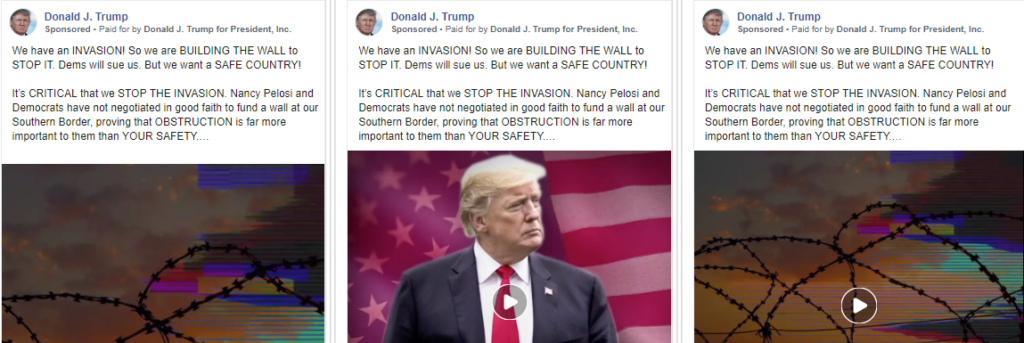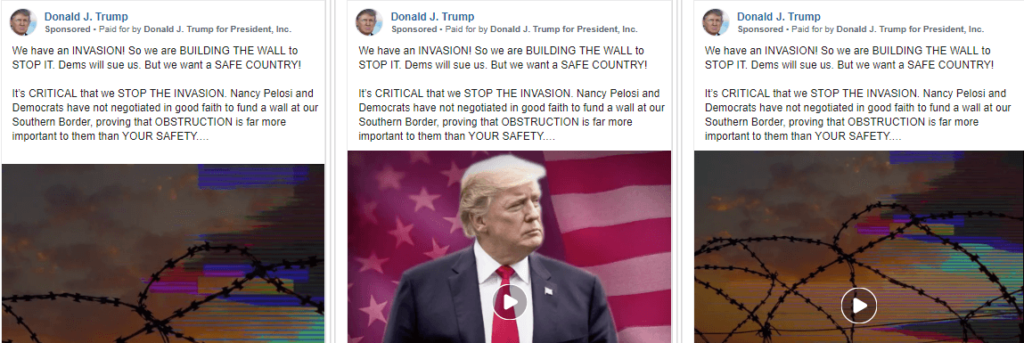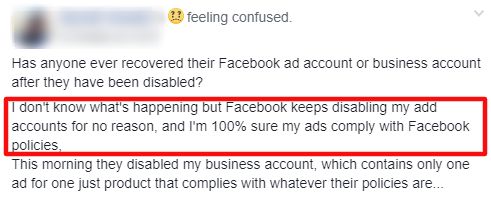Facebook New Ad Policy and New Trouble for Small Business Advertiser
- Oct-26-2019
- Bilal Uddin
- 0 comments
Facebook comes under the hot water once again when US Representative Alexandria Ocasio-Cortez called out Mark Zuckerberg to answer some critical of the Facebook policy of fact-checking on political ad campaigns.

Ironically, it is deduced that Facebook does allow the misinformation in the political ad campaign. However, to overcome this issue Facebook introduced a new policy for the political ad that makes ad approval more difficult for small-business advertisers.
Here is a quick recap of what just happened.
The next US Presidential Election is scheduled for 3 November 2020. The United States incumbent President Donald Trump started the election campaign from January 2019 in order to re-elect for president.
Since then, Trump’s election campaign is trying to leverage the word “Invasion” and used it in over 2000 Facebook ads, the tactics he used in 2016, and adding false information in campaign ads to put extra focus on immigrants breaching the US border.
Even in the tweets and speeches of US President, the word ‘invasion’ is being used repeatedly
NOW HIS STAFF HAS TRIED TO DELETE THOSE TWEETS: Trump has continually used the word 'invasion' to describe immigration into the United States.pic.twitter.com/XeoD158Fps
— Tomthunkit™ (@TomthunkitsMind) October 19, 2019
This election campaign again opened a Pandora box of Trump’s troublesome and untrue claims about undocumented immigrants. The strategy is more or less the same as the 2016 election, where Trumps chanted for “Build the Wall” and now giving warnings to immigrants in the Facebook ad campaign.


Most of the ads bluntly say, “It’s CRITICAL that we STOP THE INVASION.“
Trump has so far invested over $1.1 million on its ads (Invasion) campaign, which is significantly higher ad expenditure compare to the spending of other democratic presidential candidates.
Facebook Role and Policies
Facebook involvement and its influence in the US Presidential Election results are significant – especially after the Cambridge Analytica episode.
But first, let’s dive into the Facebook ad policies to understand the Facebook control about these.
According to Facebook ad policy, Facebook only prohibits an ad after the third party fact-checker debunks the content.
Here is what Facebook misinformation policy state about Political ads,
Posts and ads from politicians are generally not subjected to fact-checking. In evaluating when this applies, we ask our fact-checking partners to look at politicians at every level. This means candidates running for office, current office holders – and, by extension, many of their cabinet appointees – along with political parties and their leaders. In some cases, we ask fact-checkers to use their expertise and judgment to determine whether an individual is a politician, like in the case of a part-time elected official.
The US Congress Representative looked into the role of Facebook in resolving the problem of spreading misinformation in Trump’s election ad campaign.
After analyzing the AOC and Mark Zuckerberg conversation, Facebook apparently has no control of any political advertisement that contains false claims. Only the international fact-checking network possesses the authority to check the claims in political advertisements.
Facebook New Policy and New Trouble for Small Business Advertiser
To make the political ads more accurate and safer from any false claims, Facebook has introduced a new political ad policy in which Facebook will ask for verification before running any political ad. For the approval, the advertiser has to submit US identification documents and US mailing address. However, this policy has blown a new wave of trouble for small business advertisers.
The Facebook ads approval process has become more grueling, challenging, and difficult for small business advertisers.
Reportedly, Facebook has become more aggressive in flagging any ad and restricting ads without any apparent reason.
An experienced social media strategist, Wil Spillane, shared the incident of becoming the victim of the Facebook new policy when he tried to run an ad for the client.
The ad was about eco-friendly chemical ingredients for paints. The ad got immediately flagged by Facebook AI.

The advertisers believe that this new policy – that came as an answer to the question of fact-check political ads – has a more counterproductive impact on small business advertisers. Now they are facing more flagged ad issues and slower response time from Facebook.

The issue is that Facebook artificial intelligent system is not only flagging the political ads but any ad that involves a hint of any social problems like, in this case, the term “eco-friendly.”
Flag ad does not mean disapproval of an ad; it takes a human review for the approval, which takes days and sometimes weeks.
What Should Advertisers do?
Facebook advertisers should be very cautious about the content of their ads. Although, here are some precautions that advertisers could take to protect their ads from getting flagged.
Facebook ad policy contains a list of 32 prohibit content that every advertiser should read word-by-word to ignore any unforeseen ad ban.
If the ad content is required to add some social issues, political, or election, then it is better to become authorized to run political ads.
To become authorized in US, there are two basic requirement
Read this complete country-specific Facebook instruction to become an authorized advertiser.
Conclusion
As you have probably heard when the bulls fight the crops suffers, here the condition of small business advertisers is the same as the crops.
The situation seems to be catastrophic for the advertisers and they should be prepared for some ad disapproval for no reason at all. The only precautions they could take is to follow the policies of Facebook carefully so incase of ad disapproval you could defend your claims easily.
